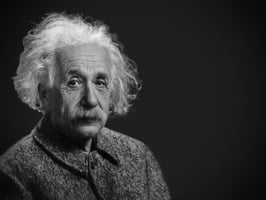Science is like a giant puzzle, and the people who put the pieces together are often the most...
The Timeless Geniuses: The Greatest Classical Composers

Classical music has a rich history, defined by the profound works of composers whose legacies continue to inspire and influence the world. These composers, through their masterpieces, have shaped the course of music, leaving behind a timeless legacy that transcends generations. In this exploration, we will delve into the lives and works of some of the greatest classical composers, whose contributions have not only defined the genre but also elevated it to unparalleled heights.
Ludwig van Beethoven: The Revolutionary Maestro
Ludwig van Beethoven stands as a monumental figure in classical music. His compositions, ranging from symphonies to piano sonatas, are celebrated for their emotional depth and innovative structures. Beethoven’s ability to convey profound emotions, even as he battled with personal struggles, such as his hearing loss, makes his music a testament to the human spirit. Works like the Ninth Symphony and the Moonlight Sonata are enduring examples of his genius, showcasing his mastery of both form and expression.
Wolfgang Amadeus Mozart: The Prodigious Virtuoso
Wolfgang Amadeus Mozart, often hailed as a prodigy, composed over 600 works in his short life, spanning symphonies, operas, chamber music, and more. His compositions are characterized by their clarity, balance, and inventiveness. Pieces such as "Eine kleine Nachtmusik" and "The Magic Flute" continue to be performed worldwide, illustrating Mozart’s unparalleled ability to blend technical precision with melodic beauty. His music remains a cornerstone of classical repertoire, admired for its timeless elegance and complexity.
Johann Sebastian Bach: The Master of Counterpoint
Johann Sebastian Bach’s influence on classical music is immeasurable. Known as the master of counterpoint, Bach’s compositions are revered for their intricate musical structures and harmonic depth. His works, including "The Brandenburg Concertos" and "The Well-Tempered Clavier," are considered essential studies for musicians and composers alike. Bach’s ability to intertwine multiple musical lines into a cohesive and harmonious whole demonstrates his extraordinary skill and creativity, solidifying his place among the greatest classical composers.
Franz Schubert: The Lyrical Genius
Franz Schubert’s music is celebrated for its lyrical beauty and emotional expressiveness. Despite his short life, Schubert composed an astonishing number of works, including over 600 lieder (German art songs), symphonies, and chamber music. His compositions, such as "Ave Maria" and the "Unfinished Symphony," reflect his deep sensitivity and ability to convey profound human emotions. Schubert’s music, with its rich melodies and poignant harmonies, continues to resonate with audiences, earning him a lasting legacy as one of the greatest classical composers.
Pyotr Ilyich Tchaikovsky: The Romantic Visionary
Pyotr Ilyich Tchaikovsky’s music is synonymous with the emotional intensity and grandeur of the Romantic era. His compositions, such as "Swan Lake," "The Nutcracker," and the "1812 Overture," are celebrated for their dramatic flair and melodic richness. Tchaikovsky’s ability to evoke deep emotions through his music, coupled with his skillful orchestration, has made him one of the most beloved composers in the classical canon. His works continue to captivate audiences around the world, showcasing his enduring influence on the genre.
Conclusion:
The legacy of the greatest classical composers is one that transcends time and place, continuing to inspire and move listeners across the globe. From Beethoven’s revolutionary compositions to Mozart’s elegant melodies, Bach’s intricate counterpoint, Schubert’s lyrical genius, and Tchaikovsky’s romantic intensity, these composers have left an indelible mark on the world of music. Their contributions have defined the essence of classical music, ensuring their place as the best classical composers in history, whose works will be cherished for generations to come.


